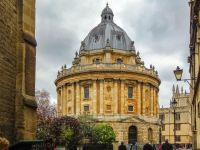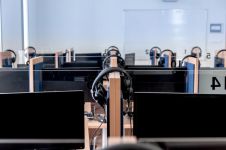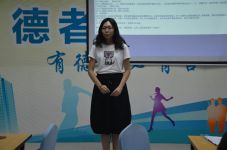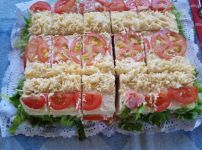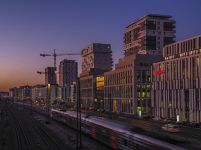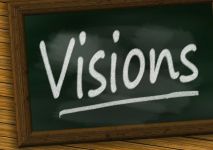潘基文秘书长在荷兰莱顿大学英语演讲稿
Thank you for your warm is a privilege and honour to be invited to addressthis prestigious academicinstitution. I would also like to thank the other co-hosts, the City ofLeidenand the Leiden University Medical Center.

Leiden University is aninternationally renowned hub of learning and research with ahistory thatstretches back many centuries.
Indeed, one of the pioneers ofinternational law and the principles that guide the UnitedNations began hisstudies here more than 400 years ago, the legendary jurist Hugo Grotius.
Many distinguished scholars havefollowed. Today, each of you is carrying forward thatproud tradition.
I thank you for your commitmentand want to single out for special praise your University’sglobal focus andapproach to education.
Ladies and gentlemen,
We are here to talk aboutfreedom. I can think of no better time or place.
Leiden is synonymous with freedom.
Leiden University’s credo is“Bastion of Liberty”, and the city itself carries the motto “for thesake offreedom”.
This is also a very special ier today, I took part in events marking the 100thanniversary of the PeacePalace in The Hague. And on this date fifty years ago, Dr. Martin LutherKing,Jr. delivered his monumental “I Have a Dream” speech.
Dr. King spoke of the “riches offreedom and the security of justice”. He reminded theworld that the rights ofany minority should be the cause of all.
As he said, “their freedom isinextricably bound to our freedom”.
In other words, we share a commonfuture with shared responsibilities.
That understanding is even truertoday.
Our freedom … our possibilities…. our perils … are linked like never before.
The United Nations Charter speaksto our shared fate – and highlights the need “topromote social progress andbetter standards of life in larger freedom”.
The word “freedom” suffuses theUniversal Declaration of Human Rights.
Our work to deepen the meaning offreedom is built on three pillars: development -- orfreedom from want; peaceand security -- or freedom from fear; and human rights -- or simplythe freedomto enjoy and exercise the full body of human rights.
These pillars are interdependentand mutually reinforcing.
There can be no peace withoutdevelopment … no development without peace …and neithercan be achieved withoutfull respect for human rights and the rule of law.
Today I would like to addressthose three dimensions of freedom.
Let me begin with freedom fromwant.
At the dawn of this newmillennium, the international community set out on anunprecedented journey totackle freedom from want around the world.
The Millennium Development Goalsare our touchstone for this effort. The eight goals andassociated targets makeup our blueprint to fight poverty and hunger, expand education andhealth,empower women and girls, and ensure environmental sustainability.
Thanks to combined efforts fromgovernments to the grassroots, we have made importantprogress.
The proportion of people livingin extreme poverty has been halved. Fewer children arelosing their lives tomalaria and tuberculosis. And more than 2.1 billion people gained accesstoimproved sources of drinking water – a challenge on which the Netherlands andKing Willem-Alexander have been global leaders.
But there is much unfinishedbusiness.
Nineteen thousand children underage five still die each day, most from preventablediseases.
Two and a half billion peoplestill lack access to sanitation.
Disparities between differentsocial groups are widening.
Environmental sustainability isunder severe threat.
Our planet is strained andstretched.
We must intensify our efforts intwo crucial ways.
First, with less than 1,000 daysbefore the deadline to achieve the MDGs, we mustaccelerate progress.
Second, we must shape a globalagenda beyond 2019 with poverty eradication andsustainable development at itscore.
These twin challenges will befront and centre at the United Nations next month as worldleaders gather forthe opening of the General Assembly.
We have already begun the vitaldiscussion on crafting a post-2019 agenda that isambitious, inspiring anduniversal – relevant to all people and all societies.
I will continue to stress theimportance of empowering women and girls.
Societies cannot be free if halftheir citizens cannot pursue their full potential. At theUnited Nations, I amstriving to lead by example. have nearly doubled the number of women inthemost senior UN positions. Our top officials for humanitarian affairs, humanrights, health,development and disarmament are women. So, too, is my chief ofstaff.
I am proud that for the firsttime in history, five UN peacekeeping operations involving tensof thousands oftroops are led by women.
The empowerment of women is partof a wider effort to make sure that all people are able toexercise their rightto participate in the development process.
When people are engaged and takeownership, they can become a strong force to promotelocal governance --advance the rule of law -- deepen democracy, development and peace –and spreadfreedom.
But they need our support.
I know this is a time ofausterity. Budgets are tight everywhere, including here in theNetherlands. Butwe cannot short-change investments that are needed to lift the lives oftheworld’s most vulnerable people.
At the same time, I have stressedaccountability to ensure that governments everywhere dothe most with whateverthey have. Budget priorities around the world must reflect people’spriorities.
And yet still every year, morethan a trillion dollars is drained on weapons of war. The timehas come tospend less on arsenals that destroy and more on tools that build.
Ladies and gentlemen,
Development and peace are twosides of the same coin. Freedom from want goes hand inhand with freedom fromfear – building sustainable peace and security. This is the secondpillar.
Earlier this year, I travelled tothe Democratic Republic of the Congo with Dr. Jim Kim,President of the WorldBank.
It was the first-ever such jointvisit. We went to support a framework for peace andsecurity to end fighting inone of the most battle-scarred places on earth.
The UN has tried to keep andbuild peace there for more than 50 years. But we aremodernizing our approach –engaging regional partners and civil society and putting an evengreater focuson improving the lives of people on the ground.
A peace deal must deliver a peacedividend.
People need to see the fruits ofpeace in their own lives – through schools, jobs, basicservices, theopportunities to live in freedom.
Around the world, we arereinvigorating the United Nations’ use of preventive diplomacyand mediation,peacekeeping and post-conflict peacebuilding to tackle 21st centurychallenges.
That is the way to buildsocieties founded on hope instead of fuelled by fear.
That leads me to the third pillarof freedom –the freedom to enjoy and exercise humanrights.
All States have committed toensuring their people freedom of opinion and expression …freedom of religionor belief … freedom of assembly and association … and freedom ofmovement.
Yet in far too many places, wesee opposition and obstacles to those freedoms.
It could come in the form ofcostly law enforcement machinery to sanction or spy on thosewho speak out.
It could be shutting downinternet and media outlets, or detaining dissidents, journalists orhumanrights defenders.
Think of the reporter imprisonedfor having revealed corruption.
The woman not allowed to wear herheadscarf or another who is not allowed to show herhair.
The human rights NGO prohibitedfrom receiving funding.
The person with disabilities notallowed to vote.
The students forbidden frompeacefully demonstrating against misrule.
Fear is often the driver forrestrictions of freedom.
Fear of the new. Fear of theunknown. Fear of what is different. Fear of allowing others a sayin thedecisions affecting their lives. Or sometimes, simply, fear of the truth.
We see this in rising examples ofnational legislation that restrict human rights defendersand civil society.
There are a growing number oflaws being wrongly used to impede their work, includinganti-terrorism andnational security legislation; laws relating to public morals, defamationorblasphemy; cumbersome laws on the registration, functioning and funding ofassociations;official-secrets legislation; and legislation regulating Internetaccess.
We see it in dozens of countriesthat still criminalize consensual, same-sex relationships.
We see it in bans on minarets andother restrictions that drive wedges in society bytargeting minorities andmigrant communities.
We see it in arbitrary bans onpeaceful assemblies.
And we see it in surveillanceprogrammes that have grown ever more aggressive.
Let me be clear. Concerns aboutnational security and criminal activity may justifyexceptional andnarrowly-tailored use of surveillance.
But surveillance withoutsafeguards to protect the right to privacy hampers fundamentalfreedoms.
People should feel secure in theknowledge that their private communications are not beingunduly or unjustlyscrutinised by the State.
Those disclosing information onmatters that have implications for human rights need to beprotected.
Although some in power mightclaim they need to curtail freedoms to preserve order, thisin fact could havethe opposite effect.
Yes, protecting freedom is notfree. It requires investments. But curtailing freedom alsocarries a heavyprice.
When people do not have a meansto channel their grievances - when they are not allowedto speak out, protestpeacefully or exercise their democratic rights, stability will suffer.
Look no further than the MiddleEast and North Africa, where decades of oppressionbrought about uprisingswhich have now led to death and devastation. This morning, I spokeabout mydeep concerns regarding Syria at the Peace Palace ceremony, I am alsocloselywatching the situation in Egypt.I have offered one word of advice to leadersaround theworld:
Listen.
Listen to the concerns, demandsand hopes of your people.
If you do not listen to yourpeople, you will hear from them – in the streets, in the squares,or mosttragically on the battlefield.
Is there a way out? Yes.
The answer is more democracy. More understanding. More freedom.
I once again appeal to leadersacross the world to promote dialogue, reconciliation andsupport for inclusivepolitical transitions.
This is the way to build stable,democratic, free and united societies.
Here in Europe, which has servedas such a remarkable engine of integration, I make aspecial plea fortolerance, understanding and acceptance of diversity and the rights ofmigrantsand refugees.
Ladies and gentlemen,
We have many challenges beforeus. But there are also many reasons to be hopeful.
Again and again, we have seenthat when people are engaged on a local or global level,change can rictions on freedoms can be lifted.
For example, over the past twodecades, thanks to human rights activism across the globe,nearly 40 countrieshave decriminalized same-sex relations. The Netherlands has been a pioneer–and I have sought to lead the way at the United Nations as a proud defender ofLGBT equality.
But the real credit belongs tothe voices and the activism of ordinary people who stand upand speak out.
We saw such extraordinaryactivism twenty years ago at the World Conference on HumanRights in Vienna. Aninspiring assembly of governments and thousands of people from all overtheworld joined forces - mothers of the disappeared, indigenous peoples,minorities, migrants.
They came together to say humanrights are universal, indivisible, interdependent andinterrelated.
We are all “born free and equalin dignity and rights”. We all have a right to live in freedomand equality.
As Grotius said more than 400years ago, States’ rights come from all of us as individuals;the power of thestate is the result of collective agreement.
With such sovereignty comesresponsibility.
A responsibility to make surethat no person – regardless of ethnicity, gender, geography,disability, raceor other status – is left behind, denied universal human rights orbasiceconomic opportunities.
A responsibility towards freedomof the individual, for development and peace to flourish.
We have examples that guide us …leaders that inspire us … and international standardsthat bind us.
Let us draw on them to widen thecircle of freedom for one and all.
Thank you.

